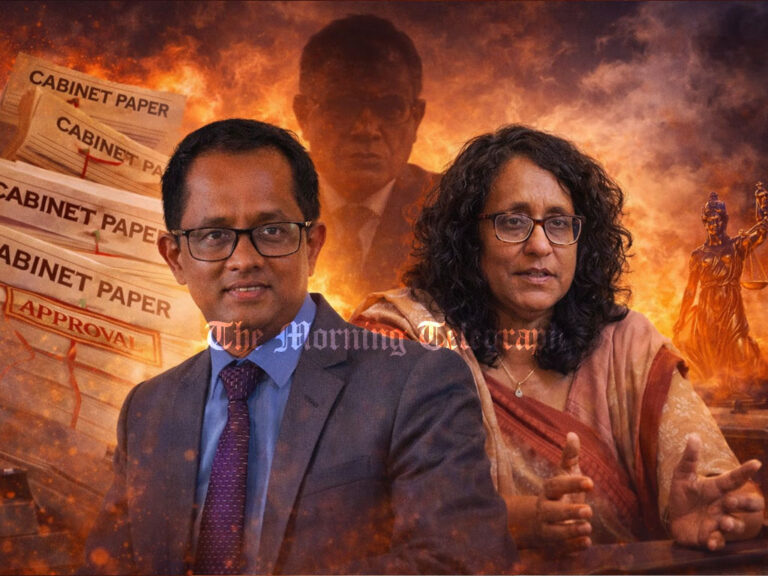
Journalist Kishani Alanki Perera has publicly criticized Sri Lanka’s Justice Minister for refusing her request for an interview, stating he needed prior approval from his party, the National People’s Force (NPP). Alanki expressed her concerns on social media, questioning whether this reflects a shift in the party’s stance toward media engagement.
The journalist revealed that her proposed interview would have tackled significant issues, including recovering stolen assets, promoting justice, and ensuring accountability. These are topics of public concern and central to the mandate of the Justice Ministry.

In her post, Alanki emphasized her surprise at the Minister’s response, noting that he had previously appeared in interviews with her before the election without citing such restrictions. She questioned whether this indicates a change in the party’s policy regarding media transparency or an increased reliance on centralized decision-making.
Alanki’s social media post has sparked a broader debate, with many speculating about the implications of such a stance for the NPP, which has often positioned itself as a proponent of accountability and open governance.
Critics argue that requiring party approval for individual interviews could hinder ministers from directly engaging with the public on pressing issues. Supporters of the policy, however, suggest that it may be a way to ensure that party messaging remains consistent and avoids potential miscommunication.
This incident has reignited discussions about the role of the media in holding public officials accountable and whether such restrictions align with the principles of transparency and democratic governance. Observers are keen to see how the NPP and its leadership will respond to the growing public scrutiny over this issue.




